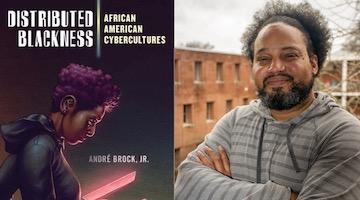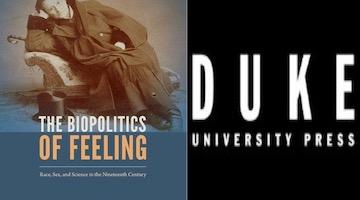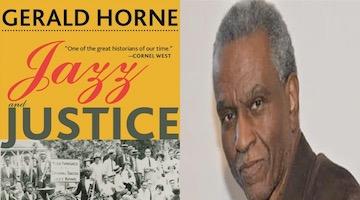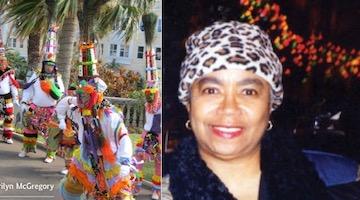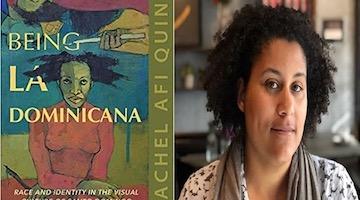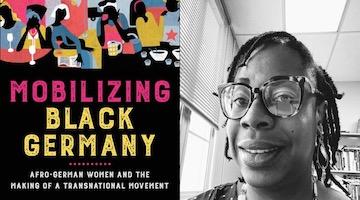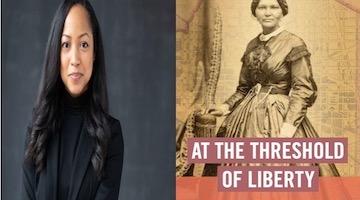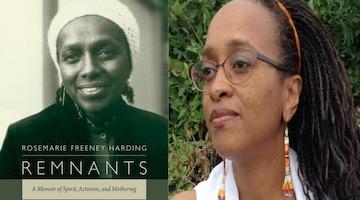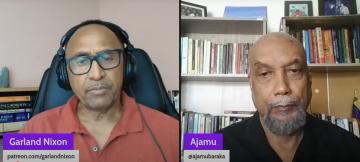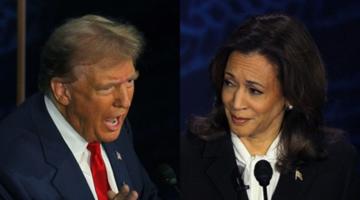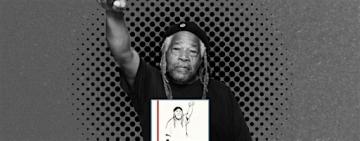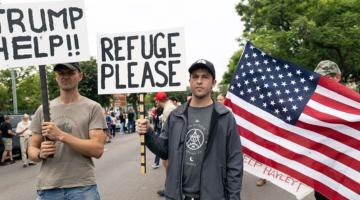A central aim of liberation theology, in both the Christian and Muslim faiths, is to wrestle theology away from the elites and their privileged pontification
“This is a book about siding with the oppressed and of speaking truth to power.”
In this series, we ask acclaimed authors to answer five questions about their book. This week’s featured author is Shadaab Rahemtulla. Rahemtulla is Assistant Professor in the School of International Studies at the University of Jordan. His book is Qur'an of the Oppressed: Liberation Theology and Gender Justice in Islam.
Roberto Sirvent: How can your book help BAR readers understand the current political and social climate?
Shadaab Rahemtulla: I hope Qur’an of the Oppressed helps readers understand how Islam, and indeed religion as a whole, is a contested category. Religion is often portrayed, especially in progressive Leftist circles, in a condescending manner, as being a medieval, backward, and innately conservative phenomenon, legitimizing the power structures that be. This is a book that tells a rather different story -- a story of siding with the oppressed, of speaking truth to power. Specifically, it examines how a number of Muslim intellectuals, from South Africa to India to Black America, have (re)interpreted the Qur’an through the framework of social justice and liberation. Living in different contexts of oppression, including patriarchy, apartheid, and interreligious communal violence, these intellectuals were deeply inspired by the God of justice whom they encountered in the Qur’an, a text considered by Muslims as being the living Word of God.
What do you hope activists and community organizers will take away from reading your book?
Through this book, I hope readers will come to see that “theology” and “religious studies” are not simply abstract, philosophical undertakings, confined to the dusty libraries of lofty seminaries and institutions. On the contrary, theology is the stuff of life. This is a central aim of liberation theology: to wrestle theology away from the elites and their privileged pontification and to firmly ground reflection on God and Her/His words in the everyday struggles of living, breathing people, many of whom are finding it increasingly difficult to live a dignified existence in today’s cruel world. Theology may well be, literally speaking, the study of God, but – this book asks – who is studying God here? An upper-class White man living in the fancy part of town? An exploited migrant worker, barely able to make ends meet? An indigenous woman living in the context of occupation? Very different conceptions of God -- that is, very different theologies -- will be produced depending on who is undertaking that reflection, in which context, and for what ends. To say that theology is the stuff of life is to say that we need to privilege the lived realities and perspectives of those who are underprivileged, who live on the edges of society. This is what liberation theology is all about and, frankly, this is what religious scholarship as a whole should be all about.
We know readers will learn a lot from your book, but what do you hope readers will un-learn? In other words, is there a particular ideology you’re hoping to dismantle?
Through this book, I hope readers will begin to question some deeply entrenched assumptions about Islam and Muslims. For many Western-based readers, Islam is, essentially, a synonym for oppression, backwardness, and chauvinism. But, to go back to the critical “who” question that I raised earlier, whose Islam are we talking about in the first place? That is, whose Islam are we assuming is the real Islam? Clearly, media pundits in Fox News and CNN, who often know nothing about the Muslim faith, are not authorities on Islam. Far from it! But, going beyond this rather basic point, we also need to appreciate that amongst Muslims themselves -- men and women, Shi’as and Sunnis, Arabs and non-Arabs, modernists and traditionalists, and so forth -- there is heated debate about the meaning and implications of the Muslim faith. This debate, at its core, is all about power. There are hegemonic interpretations of Islam, which view Islam as an establishment religion, co-existing only too comfortably with the existing corridors of power. And there are the interpretations of the oppressed, whose voices and experiences have been excluded from mainstream Muslim discourse, if not written out of the story altogether. So, again, when we use the term “Islam,” whose Islam are we really talking about: that of the affluent center or the neglected margins?
Who are the intellectual heroes that inspire your work?
I have been inspired by the four pioneering Muslim intellectuals who constitute the case studies in this book: namely, the South African Farid Esack, the Indian Asghar Ali Engineer (d. 2013 – may he rest in power), the Black American Amina Wadud, and the Pakistani American Asma Barlas. Esack and Engineer focus on Islamic liberation theology while Wadud and Barlas undertake women’s gender egalitarian readings of the Qur’an. Growing up as a Muslim in Canada, I often felt torn between two personal callings: on the one hand, I was (and continue to be) a deeply religious person who was actively involved in the local mosque and the Muslim Students’ Association (MSA); on the other hand, I was immersed in Leftist political circles that had a sharp, indeed crusading, secular bias, often portraying religion as a tool -- a mere superstructure -- of the dominant capitalist system. I had to learn, very quickly, how to wear different hats in different spaces. And it is the scholarship of these Muslim intellectuals that has given me the ability, the language to bring together these two worlds, to show that the two callings that lie closest to my soul -- submission to the One God and the fight for social justice -- are not mutually exclusive, but are actually one and the same struggle.
In what way does your book help us imagine new worlds?
A big part of this book is about saying religionmatters.That is, religion is socially relevant, and it can allow us to speak to the problems of the times in an effective manner. This is especially true in terms of Muslim historical experience. In Muslim-majority societies, religion (legitimately) holds considerable sway in the public sphere, and so if we want to advocate women’s rights, or workers’ rights, or civil liberties, we need to do so without alienating religion. Musawah -- an influential Muslim women’s organization launched in Malaysia in 2009 -- is a great example of this, critically drawing on Islamic texts and resources in order to strengthen women’s rights within the personal status laws of Muslim-majority countries. Alienating religion might work in European contexts, but it works not because Europe has gotten it right,but rather because Europe went through a specific historical experience – namely, the separation of Church and State – and this experience is not, in any way, representative of the rest of the world. So when we talk about imagining new worlds, we need to draw upon the lived historical experiences of allof the world’s people in that imaginative process, not the experiences of a small European minority which (through the legacy of colonialism) have become globalized, universalized, and presented as a “developed” norm which all societies have to aspire to.
Roberto Sirventis Professor of Political and Social Ethics at Hope International University in Fullerton, CA. He also serves as the Outreach and Mentoring Coordinator for the Political Theology Network. He’s currently writing a book with fellow BAR contributor Danny Haiphong called American Exceptionalism and American Innocence: A People’s History of Fake News—From the Revolutionary War to the War on Terror.
COMMENTS?
Please join the conversation on Black Agenda Report's Facebook page at http://facebook.com/blackagendareport
Or, you can comment by emailing us at [email protected]

